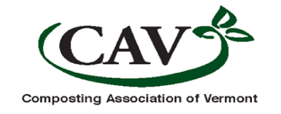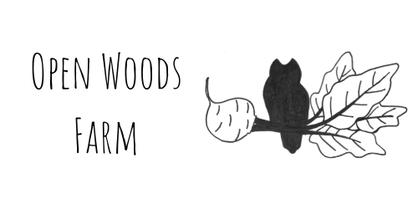On-Farm Community-Oriented Food Scrap and Agricultural Organic Residual Management in Vermont & New Hampshire
Funded by a USDA Rural Utility Services Solid Waste Management Grant Program
The purpose of this project is to reduce solid waste, avoid water pollution, and increase soil health by providing technical support and training for community-scale food scrap composting and manure management on farms in rural and small communities in Vermont and New Hampshire. While developed and extended to farmers in these two states, the toolkit and remote training resources will serve as a model and be applicable to rural small-scale farming communities throughout the U.S.
In this video, we talk with our partner farmers about why they were interested in joining the On-Farm Community-Oriented Food Scrap & Agricultural Residue Management project. Hear their perspectives to understand how this approach adds value to their farming enterprises. (8:23)
Special thanks to Jolie Scott who edited this video.
Meet our Farmer Partners in Vermont & New Hampshire:
Vermont:
Ascutney Harvest is a small, never-tilled farm in Ascutney, Vermont, owned and operated by Lauren Mucha and Oliver Owen. Lauren and Oliver grow mixed vegetables seasonally, using human-powered, no-till, and organic methods to support the health of the soil, wildlife, and the ecosystem as a whole. The farm is situated on a total of 13.6 acres, largely open and relatively flat, with wetlands, woods, and other natural scenic features.
Firefly Farm is a small family-owned enterprise in Burke, Vermont operated by Ben Tipton, his wife Michelle and their sons Makail and Evan. Tucked in the hills of Vermont’s Northeast Kingdom, they grow mixed vegetables, nuts, fruit, herbs, and flowers on 1 ½ acres and tend to a small flock of laying hens that have access to around 5 acres through rotational grazing. They also have a sugaring operation and produce garden burgers, vegan basil pesto and garlic scape hummus. They are committed to providing access to locally grown food free of pesticides, utilizing farming practices that enhance biodiversity while combating climate change, and working with nature to promote wellness for our Earth and all its beings. Their farming activities are complimented by offering farm stays, and they have B&Bs and camping sites on their property.
SUSU CommUNITY Farm is a non-profit Afro Indigenous stewarded farm and land-based healing center in Newfane, Vermont that works to elevate Vermont’s land and foodways. Through collective commUNITY they aspire to co-create an equitable and just culture for the global majority to thrive in Vermont that centers access to safe and affirming food, commUNITY, and job opportunities. Human powered, no till methods will be used for intensive production of Afroindigenous, culturally relevant vegetables on less than an acre of the 37 acre. In the future, they plan to develop storytelling gardens, showcasing traditional ecological knowledge from different cultures, including a circular garden design based on a West African medicine wheel.
New Hampshire:
Highwater Farm is a small, queer owned and operated family farm growing a diversified veggie and berry crop on approximately a half acre on a combination of owned and leased land in the floodplain of Bartlett, New Hampshire. They also have a small flock of laying hens and occasional turkeys. Through non-certified organic and regenerative growing practices, they seek to provide equitable food access and agricultural learning opportunities to the Mount Washington Valley while cultivating an outdoor lifestyle for their family that prioritizes connection to nature, generosity, and community.
Open Woods Farm is a vegetable farm on the side of a hill in the middle of a forest in Grafton, New Hampshire. Sayer Palmer specializes in high-quality long-lasting salad greens, summer high tunnel crops, winter growing, and picking rocks. She also has a flock of forest-ranged chickens for eggs and makes a dark full-flavor maple syrup in the early spring.
Sweet Beet Farm, Market and Café make up the non-profit Kearsarge Food Hub in Bradford, New Hampshire. With 1 ½ acres in production, Sweet Beet Farm produces certified organic veggies, herbs and flowers, as well as microgreens. The Food Hub emphasizes education, community engagement, and relationship building within their local food network. Sweet Beet Farm, in particular, strives to grow flavorful and nutrient dense foods while exploring regenerative practices to nurture the land and pursuing farm-based education initiatives to engage the community. Sweet Beet Market sources from the Farm and also from over 20 hyper-local, small farmers, and over 70 NH-based producers and regional partners. The Café offers prepared food and drink.
Work Song Farm, operated by Dan and Abby Kilrain, is a small-scale, certified organic farm that produces diverse vegetables, herbs and flowers on three acres in Hopkinton, New Hampshire. They aim to grow healthy, delicious food for their local community and to strive for sustainability in every way. In support of their local community, excess produce is donated to local food pantries and soup kitchens.









